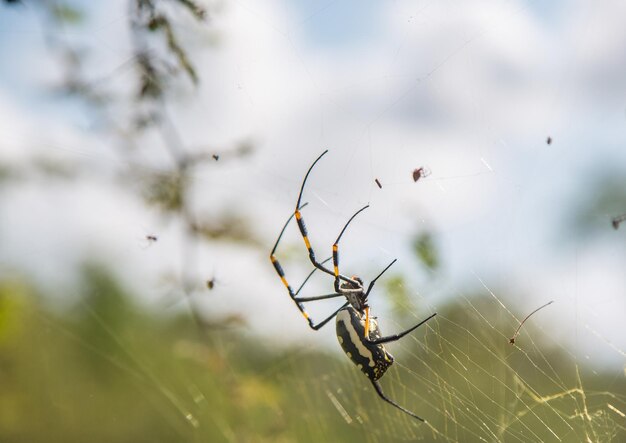Understanding Malaria: Is It a Viral Infection?
Malaria is a word that often invokes concern, especially in regions where the disease is prevalent. However, there's still a lot of confusion regarding what malaria actually is, leading many to wonder: Is malaria viral? Let's dive into what malaria is, how it spreads, and what makes it different from viral infections.
What Is Malaria?
To step into the world of malaria is to unlock the mysteries of a disease that affects millions globally each year. Malaria is a serious illness characterized by fever, chills, and flu-like symptoms. It's primarily seen in tropical and subtropical regions, where warm climates provide an ideal breeding ground for mosquitoes.
The Culprit: Plasmodium Parasites
Malaria is not a viral infection. It is caused by Plasmodium parasites, specifically five species that affect humans: Plasmodium falciparum, P. vivax, P. ovale, P. malariae, and P. knowlesi. These parasites are transmitted to humans through the bite of an infected female Anopheles mosquito.
- Plasmodium falciparum: This is the most severe form causing the majority of malaria-related deaths.
- Plasmodium vivax: Known for causing recurrent infections.
- Plasmodium ovale and P. malariae: Less common but still impactful.
- Plasmodium knowlesi: Typically found in Southeast Asia, originally a monkey malaria.
The Mosquito Connection
The Anopheles mosquitoes are vital players in this story. Unlike viral infections that can spread from person to person through direct contact or droplets, malaria requires the Anopheles mosquito as a vector to transmit the parasites. When one of these mosquitoes bites an infected person, it picks up the parasites and can then pass them on to other people it bites.
How Malaria Differs From Viral Infections
Understanding the contrast between malaria and viral infections is key in answering the central question. Viral infections are caused by viruses such as influenza, HIV, or COVID-19. These diseases spread through numerous vectors like air particles, direct contact, or contaminated surfaces.
Key Differences
- Cause: Malaria is caused by parasites, whereas viral infections are caused by viruses.
- Transmission: Malaria requires a mosquito to spread. Viruses can spread through air, touch, or fluids.
- Treatment: Malaria is treated with anti-parasitic drugs; viral infections often require antiviral drugs or vaccines.
Symptoms and Diagnosis
Symptoms of malaria can mimic those of viral infections, which can add to the confusion.
Recognizing Malaria Symptoms
- High fever
- Chills and rigors
- Sweating
- Fatigue
- Nausea and vomiting
- Headaches
- Muscle pain
Typically, symptoms appear 10–15 days after the mosquito bite. It's important to diagnose malaria accurately because untreated cases can lead to severe complications or death.
Diagnostic Methods
Diagnosing malaria involves looking for parasites in the blood. Several tests are used:
- Blood Smears: To directly observe parasites under a microscope.
- Rapid Diagnostic Tests (RDTs): To detect parasite antigens.
These methods are crucial in regions where malaria is endemic, allowing for timely treatment.
Prevention and Control
In combating malaria, prevention is just as important as treatment. Since the disease spreads through mosquito bites, controlling mosquito populations and protecting individuals from bites are primary strategies.
Preventive Measures
- Insecticide-Treated Nets (ITNs): Sleeping under these nets is an effective way to prevent mosquito bites.
- Indoor Residual Spraying (IRS): Spraying homes to kill mosquitoes.
- Antimalarial Drugs: Prophylactic drugs for those traveling to high-risk areas.
- Environmental Management: Removing standing water where mosquitoes breed.
These strategies are vital in reducing the incidence of malaria, especially in high-risk zones.
Global Impact and Efforts
Malaria poses a significant public health challenge, notably in Africa, Asia, and South America. Understanding its non-viral nature is vital in addressing the global health strategies to prevent and treat it.
Global Health Campaigns
Organizations like the WHO and various NGOs work tirelessly to combat malaria globally. Their efforts include:
- Distributing bed nets.
- Providing access to diagnostic tests and treatments.
- Educating communities about preventive measures.
The World Malaria Day serves as a platform to highlight achievements and the need for continued funding and innovation in malaria control efforts.
Future Perspectives: Research and Innovation
In the quest to eradicate malaria, research and innovation are key.
Vaccine Development
While vaccines are typically associated with viral infections, efforts in developing a malaria vaccine have shown promise. RTS,S/AS01, known as Mosquirix, is the first malaria vaccine to be recommended by WHO for use in children in areas with moderate to high transmission.
Genetic and Molecular Research
Scientists explore genetic modifications of mosquitoes to reduce transmission and study the malaria parasite's lifecycle to develop new treatments.
Technology in Combatting Malaria
Innovations like drone technology to distribute medicines and nets, as well as AI to predict outbreaks, represent future directions in malaria management.
Final Notes: Distinguishing Between Malaria and Viruses
Understanding that malaria is a parasitic, not viral, infection is foundational in combating it effectively. While both viral infections and malaria can cause severe health problems, their causes, transmissions, and treatments are unique.
Grasping these distinctions not only helps in avoiding misinformation but also empowers communities to engage with the right preventive and therapeutic strategies. As science and technology evolve, so too does our capacity to fight this ancient foe.
Quick Summary: Malaria vs. Viral Infections
- Malaria is caused by parasites, not a virus.
- Transmission occurs through Anopheles mosquito bites, not person-to-person.
- Prevention: Use bed nets, prophylactics, and control mosquito breeding.
- Global Efforts: Focus on community education, providing supplies, and vaccine development.
- Future Outlook: Innovation and research key to eradication efforts.
By understanding malaria's true nature, we are better equipped to tackle its impact across the globe. 🌍🦟🔬

